KPPC Lecture Series
With the aim to build national capacities in the area of public policies, the KPPC holds a monthly talk series that provides a platform for policy dialogue and relevant policy debate. The talk series brings onboard renowned speakers, practitioners, and academic researchers with public policy expertise from around the world. In engaging with the public, experts and national stakeholders. The KPPC Lecture Series serves as a platform where different ideas from around the world are shared and policies are challenged to inform future policies. The first step to drafting an effective public policy is to have the knowledge and expertise needed to produce it. The KPPC lecture series serves to share expertise and knowledge in order to effectively take that first step.
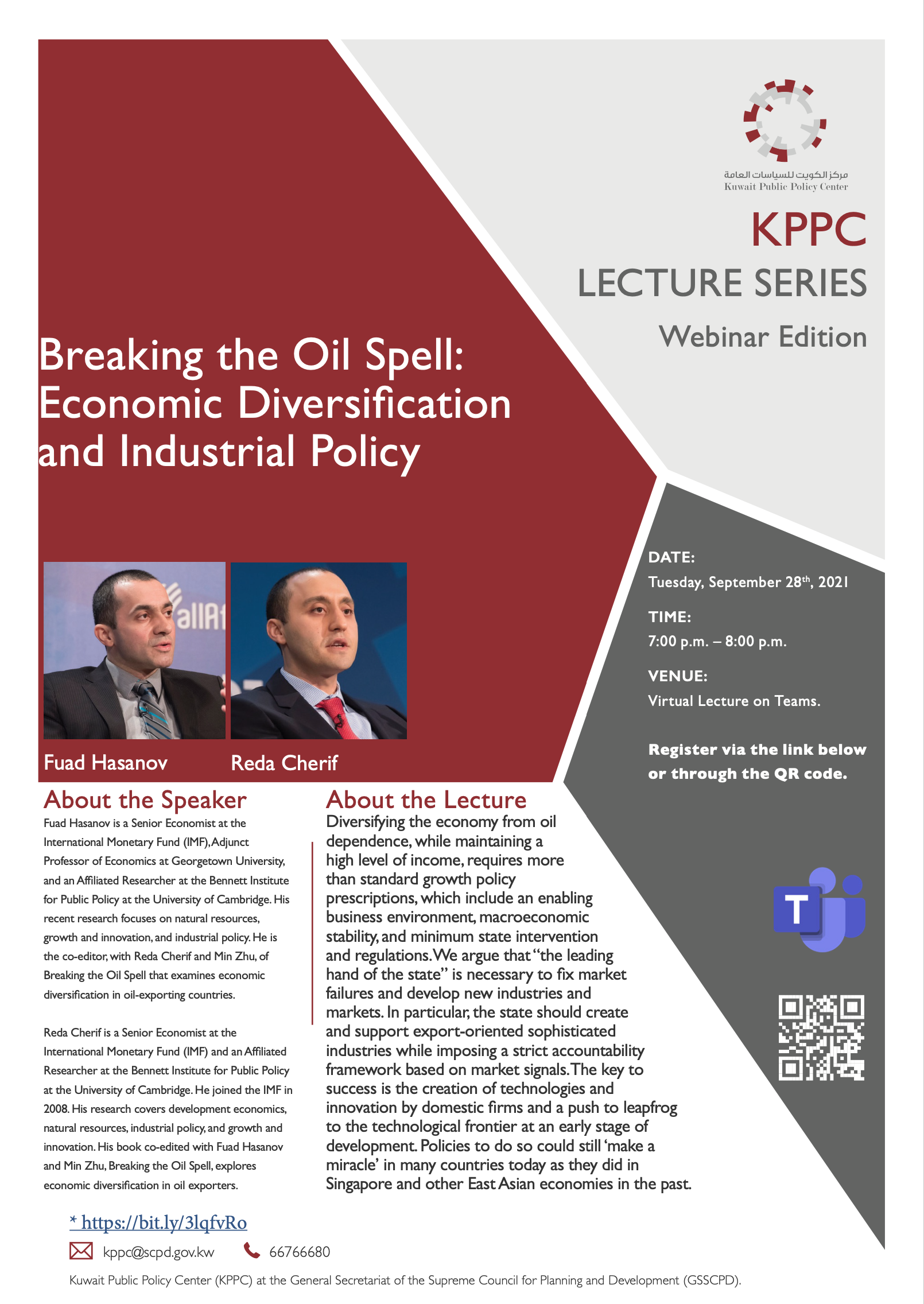
Breaking the Oil Spell: Economic Diversification and Industrial Policy
Diversifying the economy from oil dependence, while maintaining a high level of income, requires more than standard growth policy prescriptions, which include an enabling business environment, macroeconomic stability, and minimum state intervention and regulations. We argue that “the leading hand of the state” is necessary to fix market failures and develop new industries and markets. In particular, the state should create and support export-oriented sophisticated industries while imposing a strict accountability framework based on market signals. The key to success is the creation of technologies and innovation by domestic firms and a push to leapfrog to the technological frontier at an early stage of development. Policies to do so could still ‘make a miracle’ in many countries today as they did in Singapore and other East Asian economies in the past.
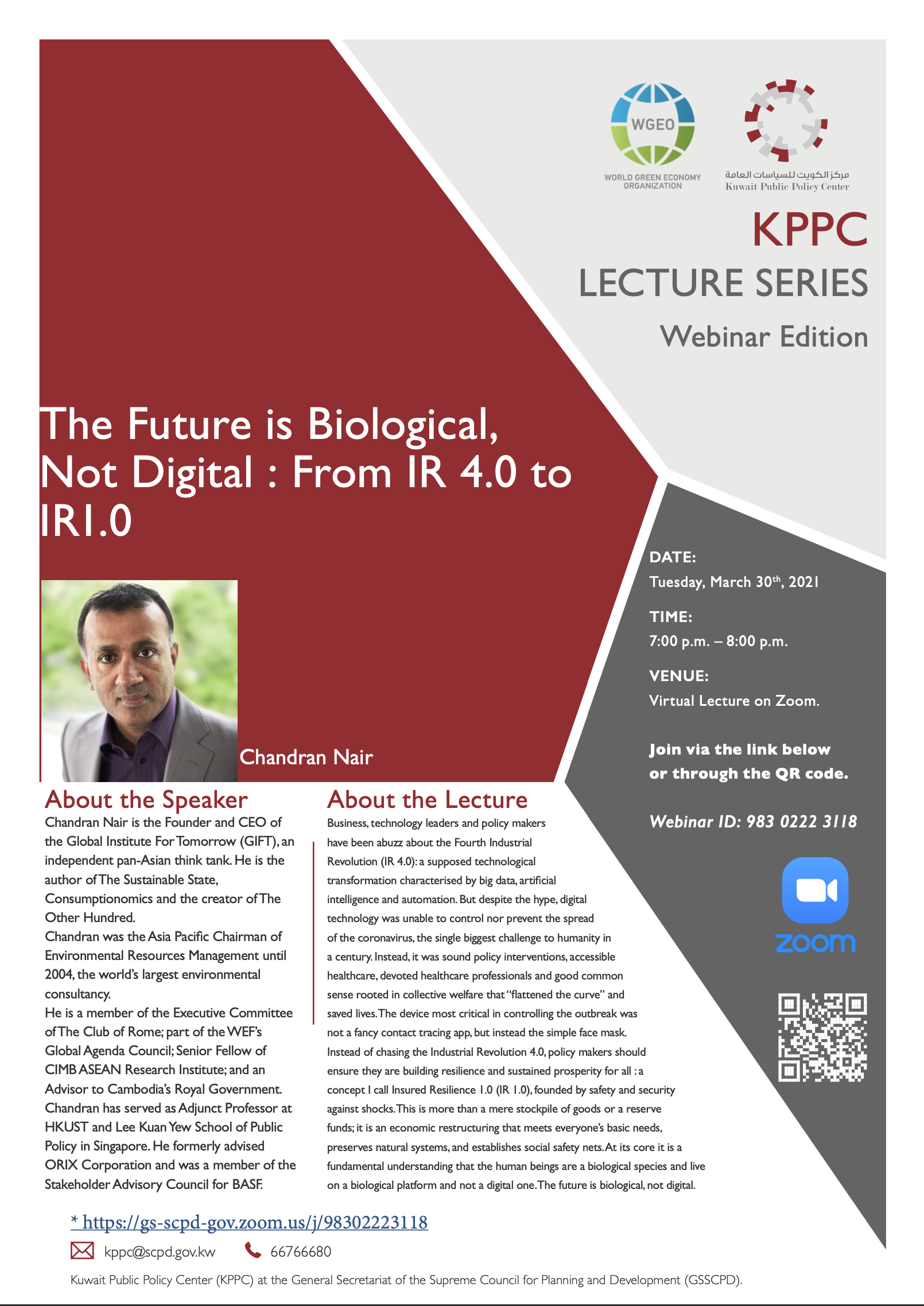
The Future is Biological, Not Digital : From IR 4.0 to IR1.0
Business, technology leaders and policy makers have been abuzz about the Fourth Industrial Revolution (IR 4.0): a supposed technological transformation characterised by big data, artificial intelligence and automation. But despite the hype, digital technology was unable to control nor prevent the spread of the coronavirus, the single biggest challenge to humanity in a century. Instead, it was sound policy interventions, accessible healthcare, devoted healthcare professionals and good common sense rooted in collective welfare that “flattened the curve” and saved lives. The device most critical in controlling the outbreak was not a fancy contact tracing app, but instead the simple face mask. Instead of chasing the Industrial Revolution 4.0, policy makers should ensure they are building resilience and sustained prosperity for all : a concept I call Insured Resilience 1.0 (IR 1.0), founded by safety and security against shocks. This is more than a mere stockpile of goods or a reserve funds; it is an economic restructuring that meets everyone’s basic needs, preserves natural systems, and establishes social safety nets. At its core it is a fundamental understanding that the human beings are a biological species and live on a biological platform and not a digital one. The future is biological, not digital.
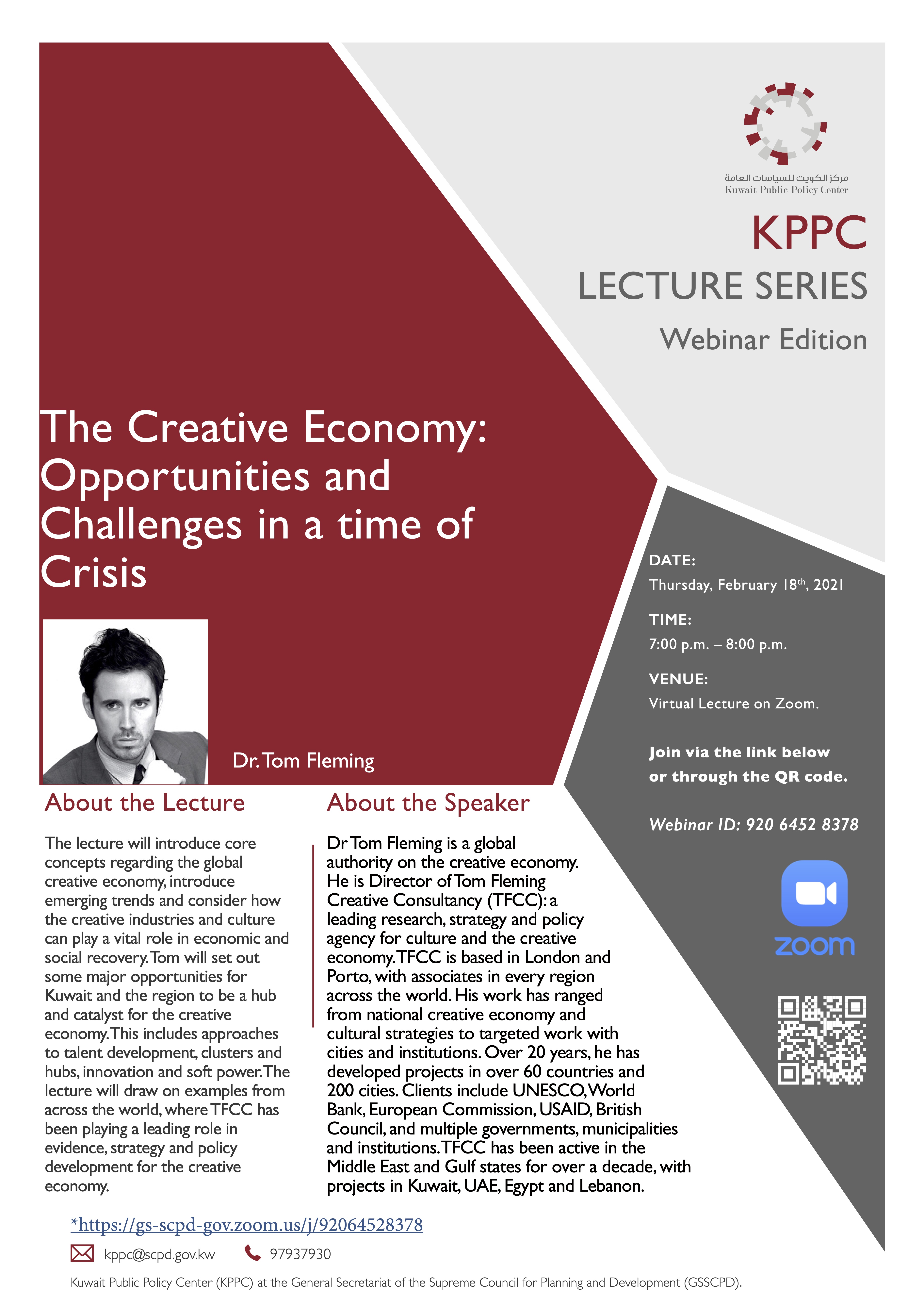
The Creative Economy: Opportunities and Challenges in a time of Crisis
The lecture will introduce core concepts regarding the global creative economy, introduce emerging trends and consider how the creative industries and culture can play a vital role in economic and social recovery. Tom will set out some major opportunities for Kuwait and the region to be a hub and catalyst for the creative economy. This includes approaches to talent development, clusters and hubs, innovation and soft power. The lecture will draw on examples from across the world, where TFCC has been playing a leading role in evidence, strategy and policy development for the creative economy.
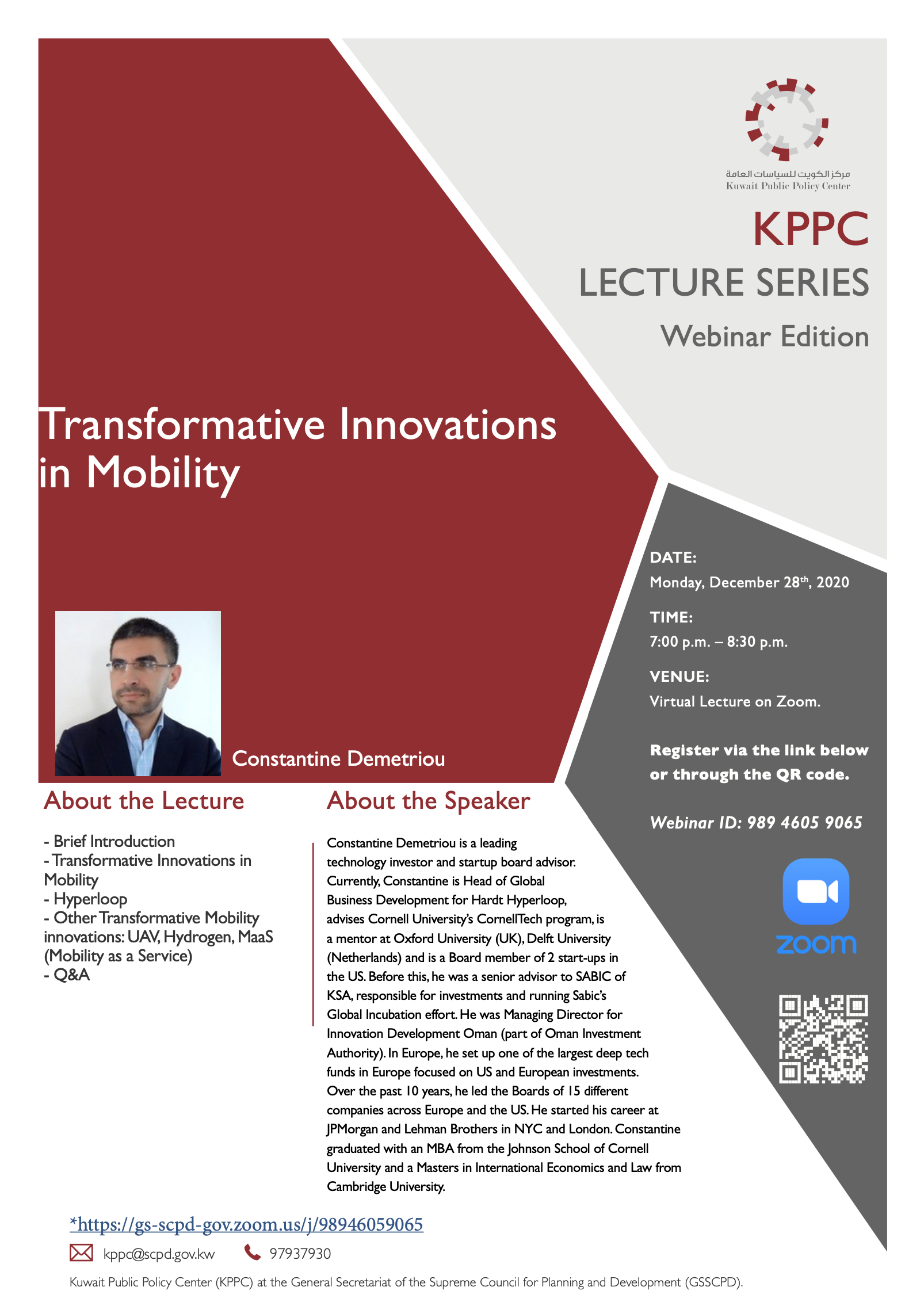
Transformative Innovations in Mobility
- Brief Introduction
- Transformative Innovations in Mobility
- Hyperloop
- Other Transformative Mobility innovations: UAV, Hydrogen, MaaS (Mobility as a Service)
- Q&A
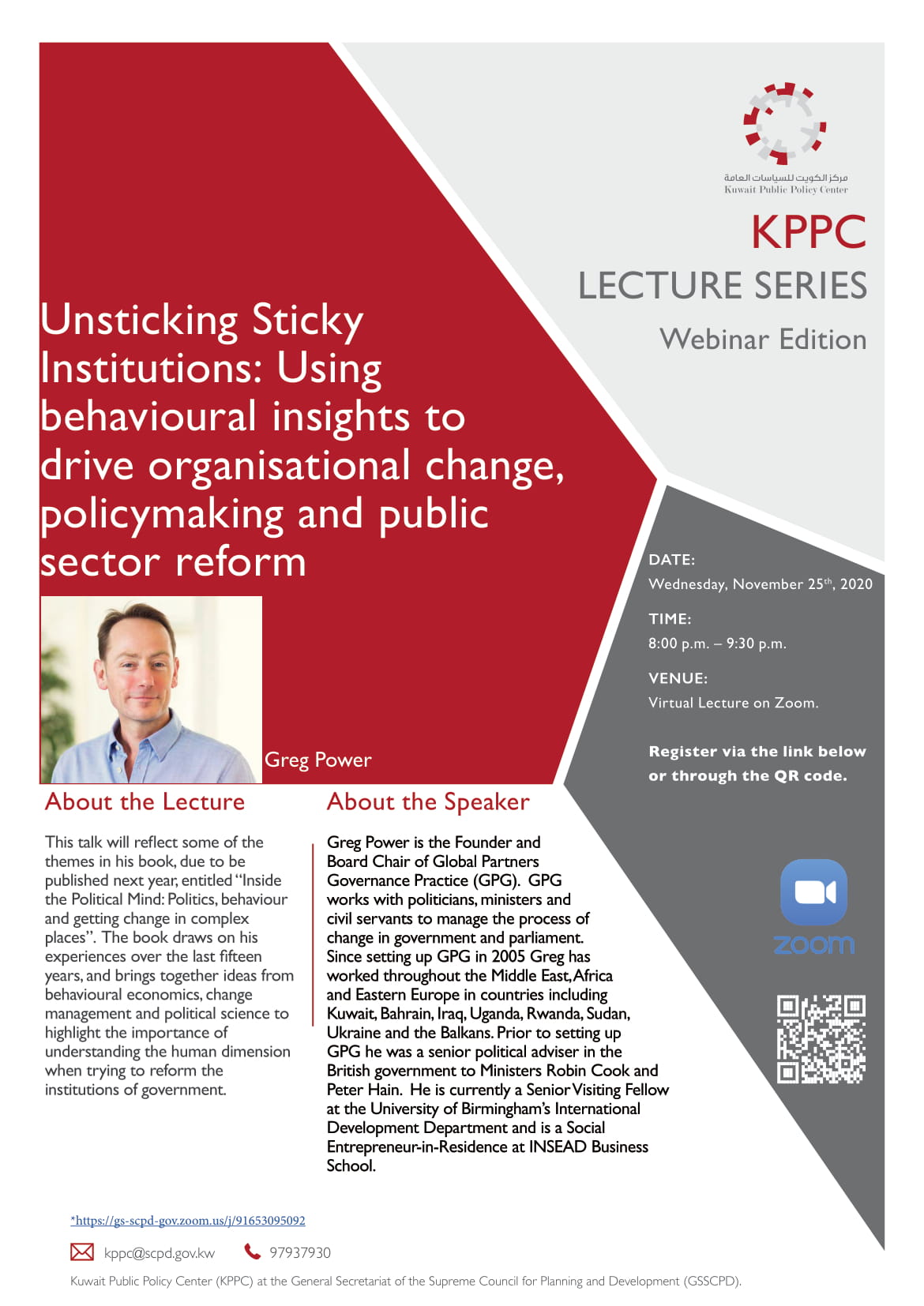
Unsticking Sticky Institutions: Using Behavioral Insights to Drive Organizational Change, Policy Making and Public Sector Reform
This talk will reflect some of the themes in his book, due to be published next year, entitled “Inside the Political Mind: Politics, behaviour and getting change in complex places”. The book draws on his experiences over the last fifteen years, and brings together ideas from behavioural economics, change management and political science to highlight the importance of understanding the human dimension when trying to reform the institutions of government.